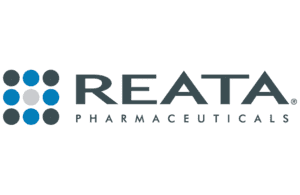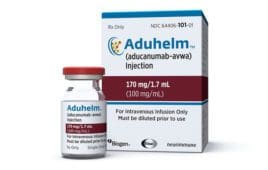 The Plano, Texas-based Reata Pharmaceuticals has won FDA approval for Skyclarys (omaveloxolone), the first therapy specifically indicated to treat Friedreich’s ataxia. The drug is approved for use in adults and adolescents aged 16 years and older. The approval also comes with a rare pediatric disease priority review voucher.
The Plano, Texas-based Reata Pharmaceuticals has won FDA approval for Skyclarys (omaveloxolone), the first therapy specifically indicated to treat Friedreich’s ataxia. The drug is approved for use in adults and adolescents aged 16 years and older. The approval also comes with a rare pediatric disease priority review voucher.
Friedreich’s ataxia is a genetic disease that affects the nervous system, causing a gradual decline in coordination, muscle strength, and energy. This can lead to difficulty with movement and reliance on a wheelchair for people in their teens or early twenties. About 5,000 people in the U.S. are diagnosed with this condition annually.
A silencing of frataxin, a protein encoded by the FXN gene, is responsible for the disease.
$370,000 launch price
Reata announced that Skyclarys would have a wholesale acquisition price of $370,000 annually.
In a company presentation, the company said not Friedreich’s ataxia patient would “face more than a nominal copay for Skyclarys treatment.”
Reata’s stock mostly recently was trading at $89.50, an increase of 95.23% over the past week.
Reata estimates that the total addressable market at launch is approximately 4,500 patients.
Traction from neurologists
According to market research from the company, roughly 95% of neurologists plan on prescribing Skyclarys within one year of approval.
“The approval of Skyclarys represents an important step forward in the treatment of Friedreich’s ataxia, providing physicians with the first disease-specific treatment option approved for patients living with this ultra-rare and progressive disease,” said Susan Perlman, MD, Clinical Professor, Department of Neurology, David Geffen School of Medicine, UCLA.
Skyclarys was approved based on data from the placebo-controlled MOXIe Part 2 trial, which showed that treatment improved function compared to placebo at Week 48. The MOXIe Extension trial also supported this conclusion. The studies used the modified Friedreich Ataxia Rating Scale to measure improvement.
Reata said it planned to pursue an FDA label expansion for pediatric patients younger than 16.
Filed Under: Neurological Disease





Tell Us What You Think!
You must be logged in to post a comment.